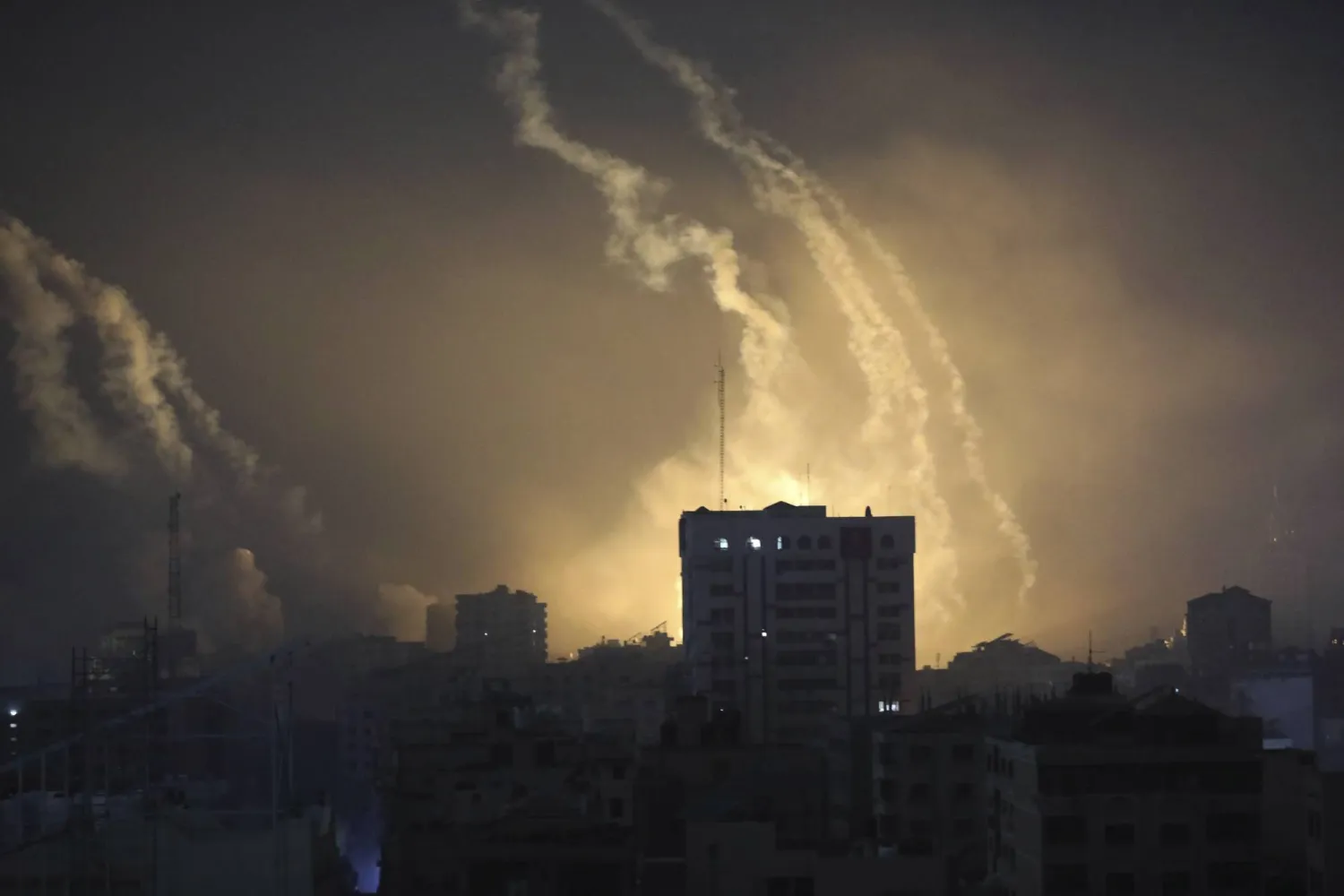Israel knocked out internet and communications in the Gaza Strip in stepped-up bombardment Friday night, largely cutting off its 2.3 million people from contact with each other and the outside world and creating a near-blackout of information, as the military said it was “expanding” ground operations in the territory.
The military’s announcement signaled it was moving closer to an all-out invasion of Gaza, where it has vowed to crush Hamas after its bloody incursion in southern Israel three weeks ago.
Explosions from continuous airstrikes lit up the sky over Gaza City for hours after nightfall. The Palestinian telecom provider, Paltel, said the bombardment caused “complete disruption” of internet, cellular and landline services. The cutoff meant that casualties from strikes and details of ground incursions could not immediately be known. Some satellite phones continued to function.
Already plunged into darkness after most electricity was cut off weeks ago, Palestinians were thrown into isolation, huddling in homes and shelters with food and water supplies running out.
Israeli military spokesman Rear Adm. Daniel Hagari said ground forces were “expanding their activity” Friday evening in Gaza and “acting with great force ... to achieve the objectives of the war.” The Hamas media center reported heavy nighttime clashes with Israeli forces at several places, including what it said was an Israeli incursion east of the refugee camp of Bureij in the central Gaza Strip. Asked about the report, the Israeli military reiterated early Saturday that it had been carrying out targeted raids and expanding strikes with the aim of “preparing the ground for future stages of the operation.”
Israel has amassed hundreds of thousands of troops along the border ahead of an expected ground offensive. Earlier Friday the military said ground forces conducted their second hourslong incursion inside Gaza in as many days, striking dozens of militant targets over the past 24 hours.
The Palestinian death toll in Gaza has soared past 7,300, more than 60% of them minors and women, according to the territory’s Health Ministry. A blockade on Gaza has meant dwindling supplies, and the UN warned that its aid operation helping hundreds of thousands of people was “crumbling” amid near-depleted fuel.









